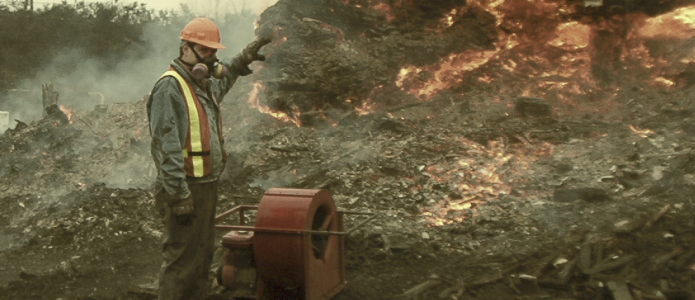Underground Coal Gasification scrapped in the UK

[responsivevoice_button]
The government announced yesterday that it will not support Underground Coal Gasification (UCG), effectively stopping the technology being adopted in the UK. The end of UCG in the UK will be celebrated by environmentalists who have been campaigning against the technology for a number of years.
UCG is a way of producing fuel from underground layers of coal by igniting them, controlling the flow of air to the fire, and extracting the resulting gas to use as a fuel. UCG, an ‘unconventional fossil fuel’, represents a new way of extracting energy from fossil fuels. As with other unconventional fossil fuels, such as tar sands and fracking for shale gas, UCG consumes large volumes of water and produces large volumes of contaminated water. Other problems include the risk of explosions and accidents, subsidence, increased air pollution at UCG sites, uncontrolled coal seam fires and industrialisation of the countryside.
The various UCG projects that have been carried out around the world have been plagued with accidents, including examples of catastrophic groundwater contamination. In the 1970s a project at Hoe Creek, Wyoming, in the US resulted in massive groundwater contamination. Potable groundwater was polluted with benzene, requiring an expensive long-term clean up operation. In 2011, Brisbane based company Cougar Energy was ordered to shut down its trial UCG project at Kingaroy due to environmental concerns over benzene contamination. Cases of contamination shouldn’t come as a surprise given that UCG creates a number of toxic contaminants, including carcinogens like benzene and toluene. Altogether, 135 compounds that might pollute the local groundwater sources near UCG sites have been identified.
Then there is the effect on the climate. While the energy produced from UCG would be particularly carbon intensive the perhaps more significant concern is that it would open access to vast coal resources which are not economically viable using conventional mining. Conservative estimates suggest an extra 600 billion tonnes of coal could be accessed.
The announcement follows a government-commissioned report by consultants Atkins. They concluded that if power stations used gas from UCG, it would be 40-100% dirtier in terms of CO2 emissions than burning gas from the North Sea or imports. As a result the Department for Business, Energy and Industrial Strategy said the government was “minded to not support” the technique.
Proponents of UCG previously responded to concerns over greenhouse gas emissions by saying that it would be combined with Carbon Capture and Storage (CCS) technologies. However it’s questionable whether UCG sites could possibly be suitable for CCS, and with test projects and funding around the world collapsing, it looks as if CCS itself may never be a viable technology.
While the announcement is fantastic news (unless you are Algy Cluff!), the threat from UCG in other countries remains significant. Recent pilot projects have been carried out in Australia, China, New Zealand, South Africa, New Zealand, Canada and the US and a host of other countries, including Hungary, Pakistan, Poland, Bulgaria, Chile, China, Indonesia, India, and Botswana are developing projects.
China and India seem to be the most likely countries to develop the technology. China has conducted 17 UCG trials since 1991 and in 2011 a $1.5 billion joint venture between UK based Seamwell International Ltd and the state-owned China Energy Conservation and Environmental Protection Group (good name!) was agreed for commercial development of UCG in the interior of Mongolia. India also has vast coal resources, but much of its untapped 88.6 billion tonnes is found at a depth of 300 to 1200 metres and is economically unviable with conventional techniques, making UCG particularly attractive. The company Coal India Limited is trying to push UCG technology to harness coal in Kaitha (Jharkhand) and Thesgora (Madhya Pradesh).
Overwhelming scientific evidence indicates that in order to prevent the most serious effects of climate change we must move away from all forms of fossil fuel as rapidly as possible. Technologies such as UCG and CCS represent attempts to continue with business as usual, keeping fossil fuels alive and preventing the radical changes to our societies that are needed if we are to address the global ecological crises we are facing. It may seem like a small victory, but seen as part of a bigger picture, stopping UCG in the UK can be a step towards ending capitalist energy systems, that prioritise profit and unlimited consumption, and creating a world where people live in harmony with the natural world.
For more information on UCG, CCS and unconventional fossil fuels, see the articles, factsheets and reports produced by Corporate Watch:
–Previous, more detailed article on UCG
–Report on unconventional fossil fuels
